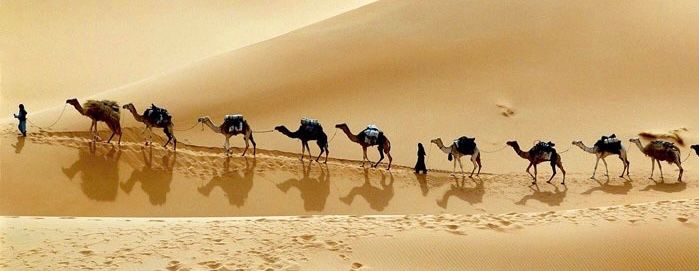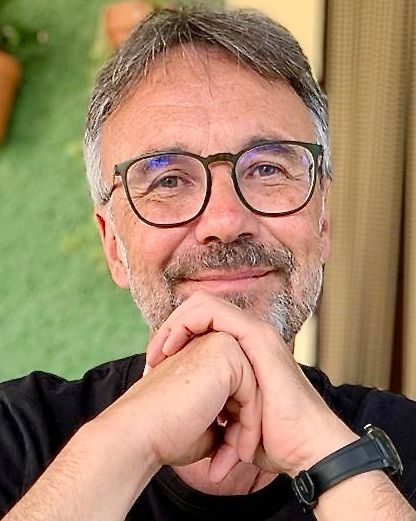In Allah's hands
Foillsichte: 04.03.2023
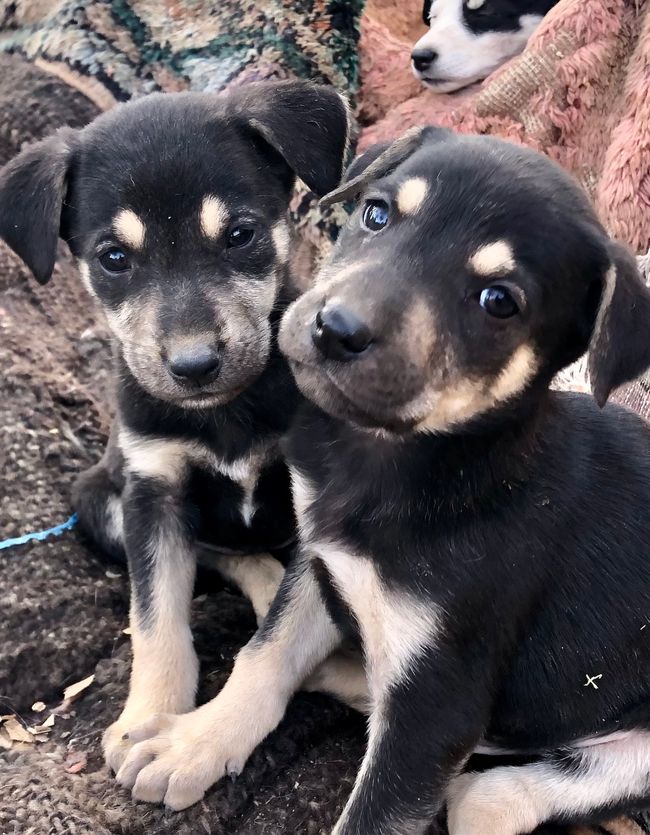
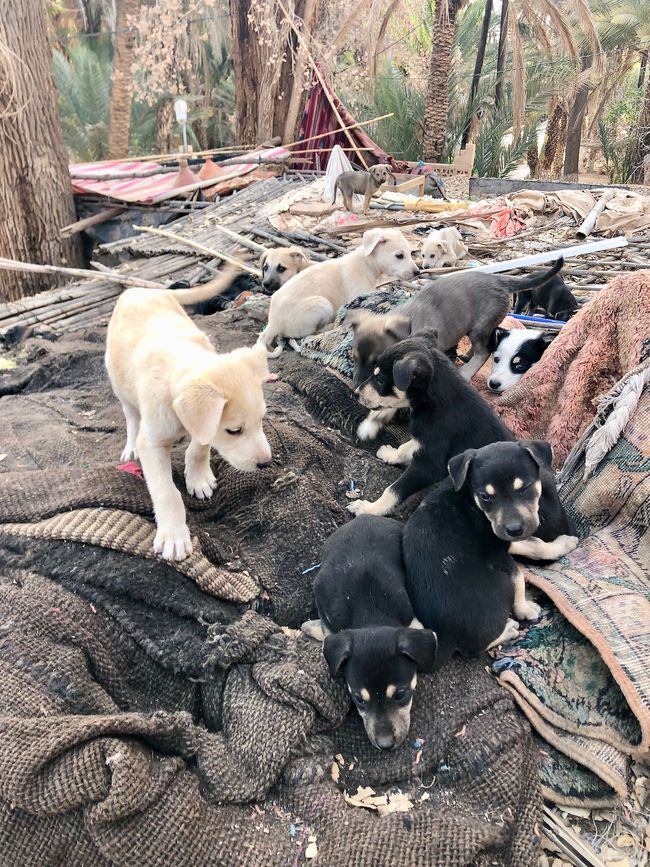
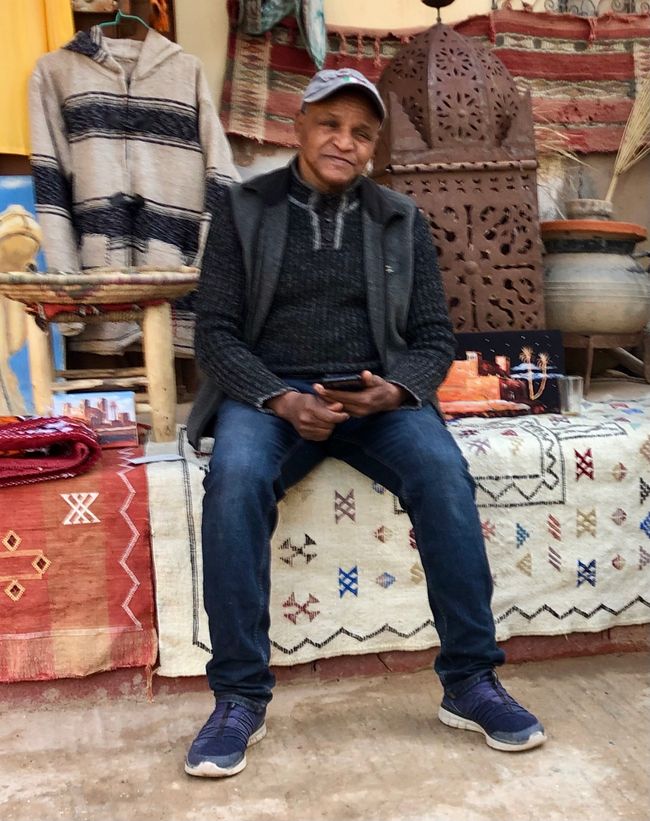
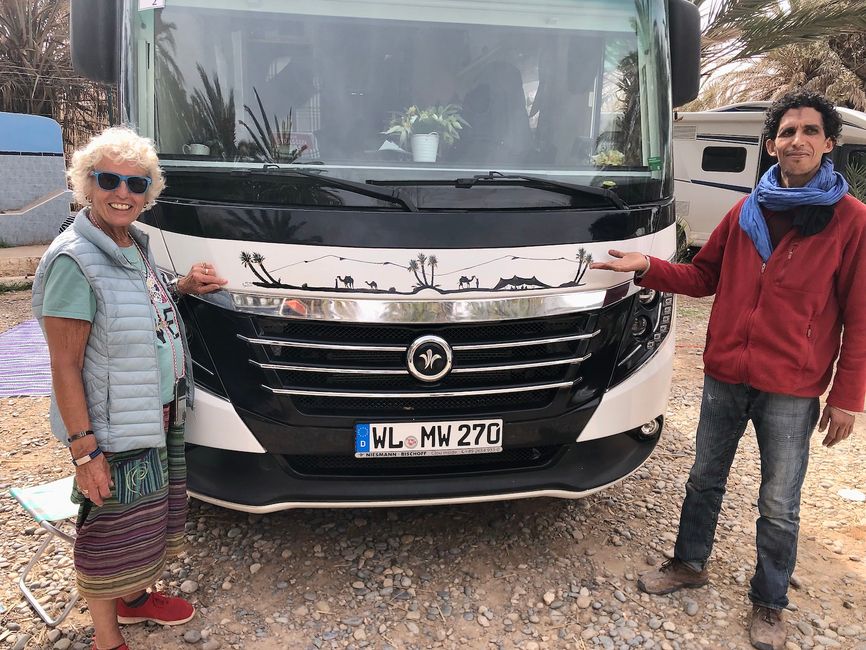
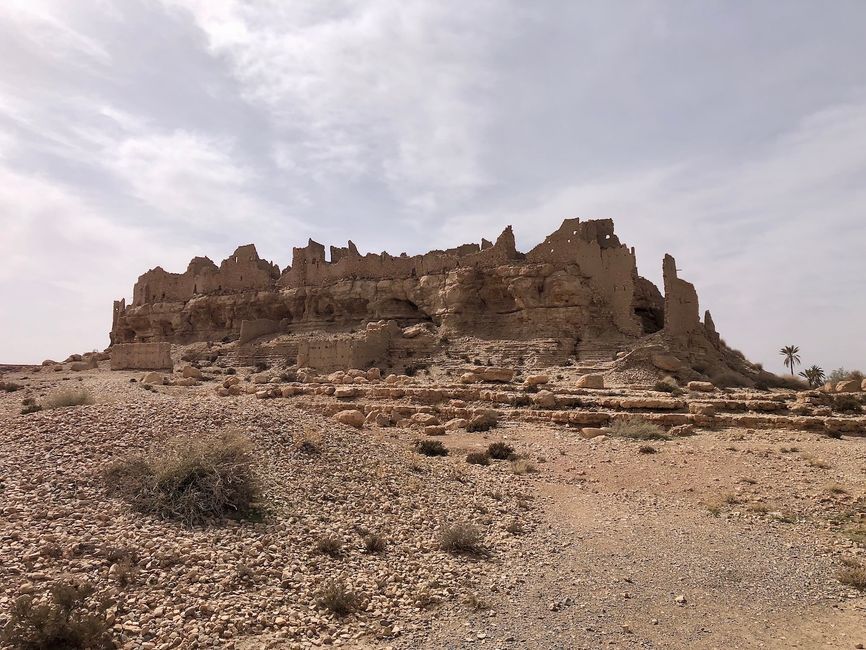
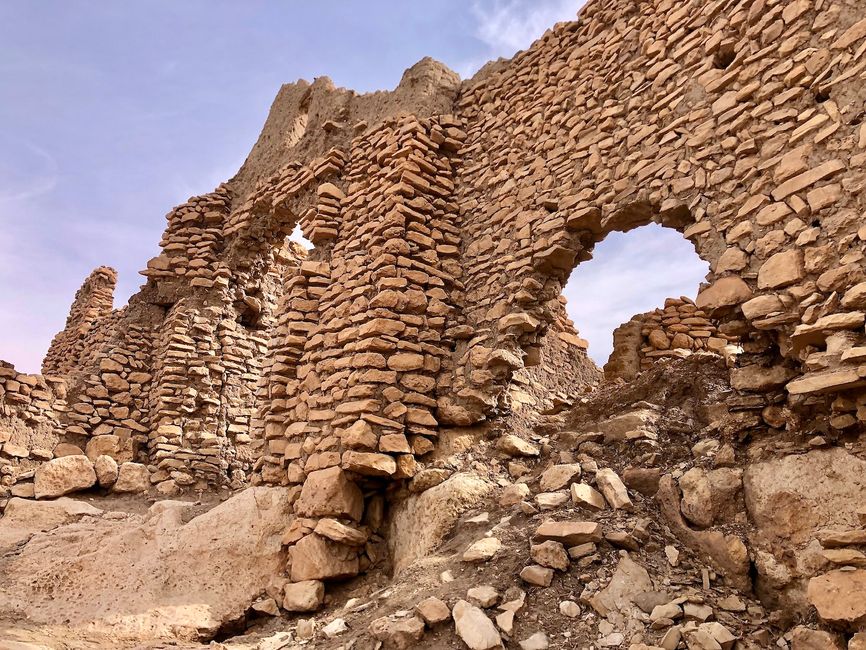
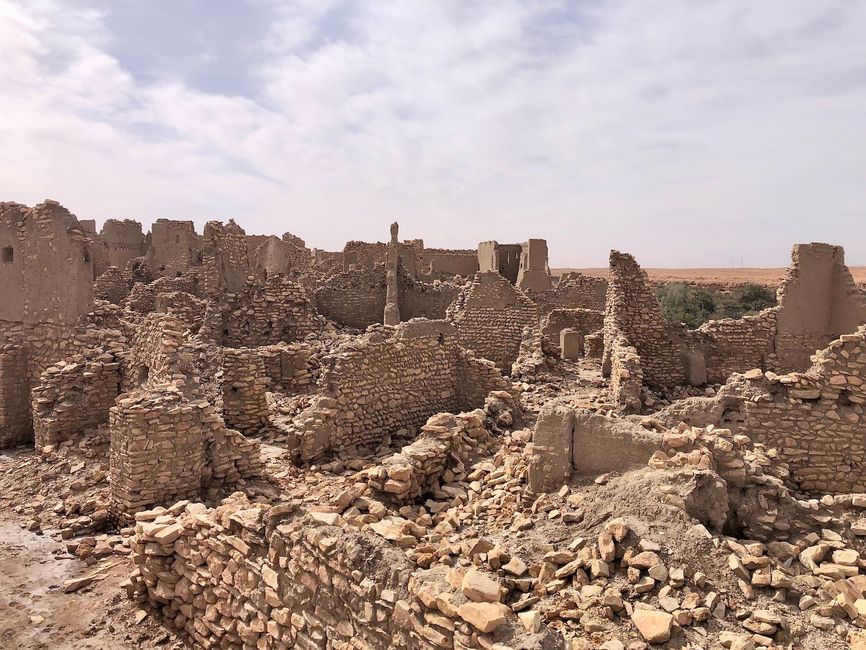
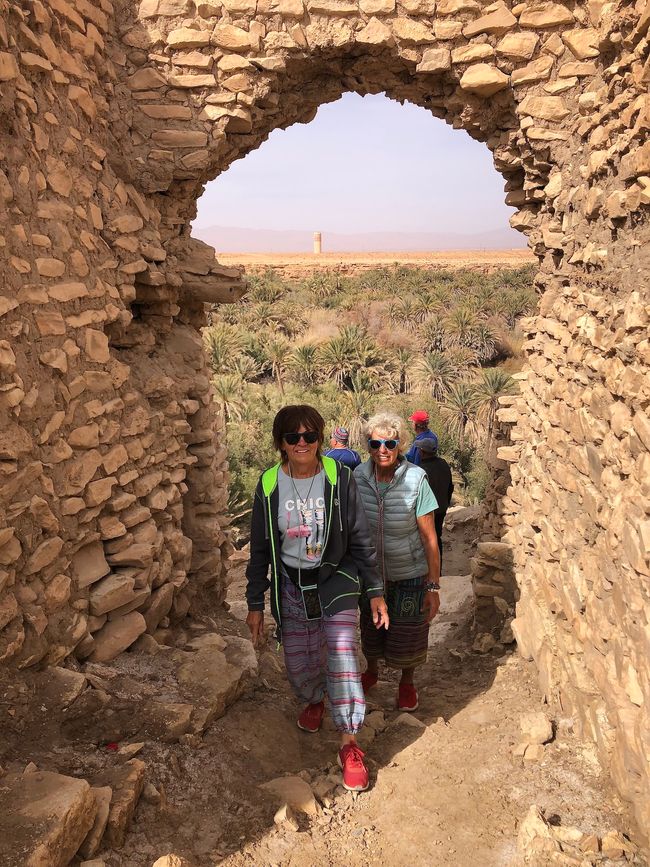
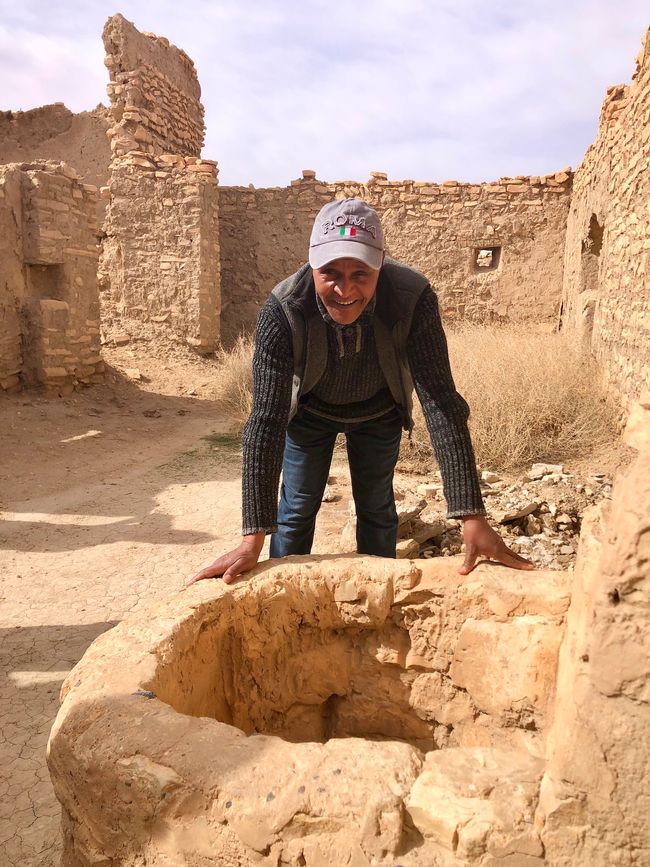
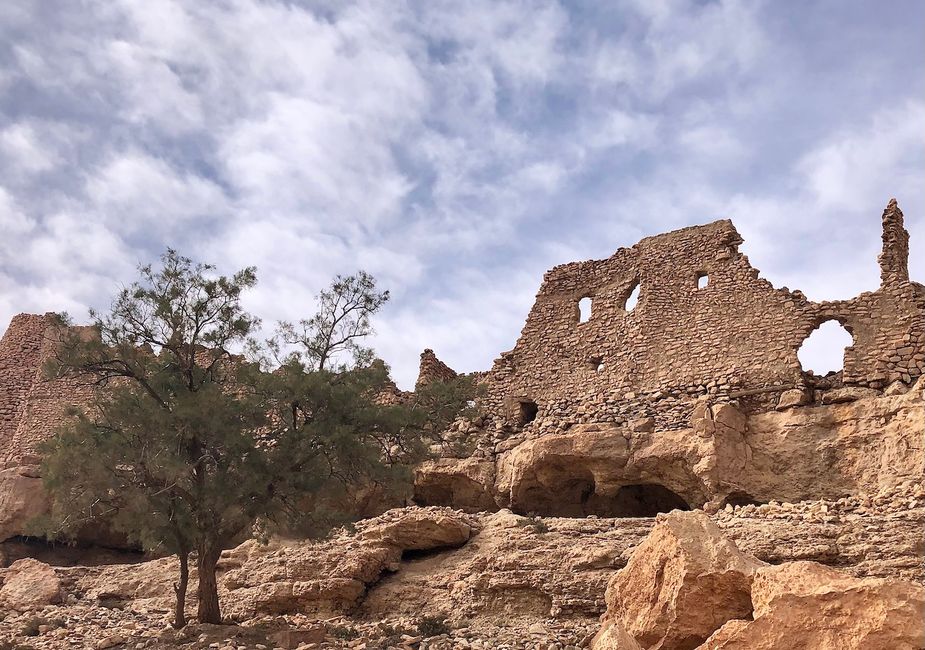
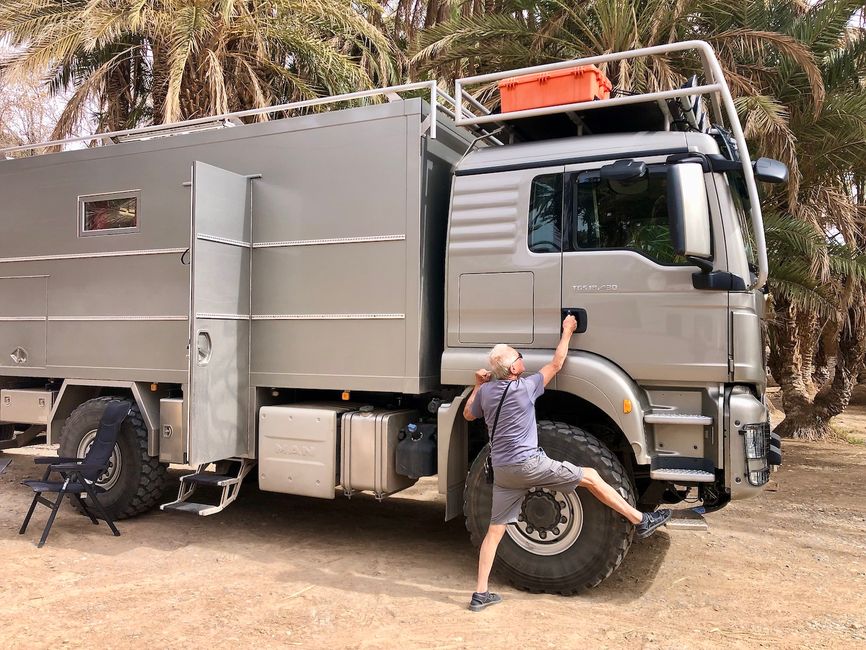
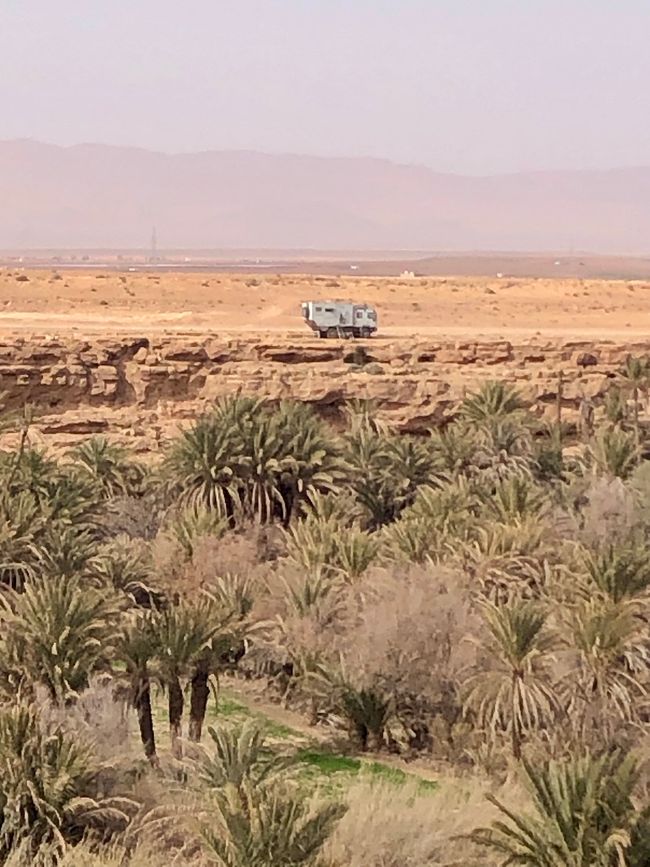
Subscribe to Newsletter
04.03.23 Meski The ravages of time are evident at the campsite 'Die Blaue Quelle' and its surroundings. But Morocco is a land of contrasts, and today I had an experience here that could not be more different: On the rooftops of the shops at the edge of the square, I discovered 17 puppies that are only five weeks old. Watching them play, joke, and wrestle - it's pure life! They have two mothers who watch over them as they grow. They are taken care of by the shop owners who will find them new homes when they are old enough. Until then, the little ones have only one thing: the high life!
And just like in Merzouga, it is Hassan who takes us under his wing here and helps us with all our questions. He has already organized a new supply of gigabytes for me and my phone this morning, and in the afternoon he will take us to visit the Kasbah and the old mosque. Unlike his namesake in Merzouga, Hassan here has a regular job. He is a trader and runs the souvenir shop Depot Norman at our campsite. That's not the only difference: Our current Hassan is 56 years old, happily married for a long time, and has four children aged between ten and 27 years.
In our conversation, I expected him to complain about the poor situation at the campsite 'Die Blaue Quelle' since the water supply stopped two years ago. But I meet a man who is at peace with himself and the world. 'Yes, the spring has dried up,' he says, 'but that's no surprise. It hasn't rained properly for eight years, and it's not the first time. When it rains properly again, the water will flow again.' He doesn't know when that will be. 'That is in Allah's hands.'
He also doesn't want to complain about his business. 'I am content,' he says with a shrug. 'The tourists come anyway.' However, money doesn't flow as easily as it did in previous years. The crises in Morocco, Ukraine, and the whole world are to blame for that. 'But my family and I will not starve. We will always have something to eat.'
The condition of the campsite does worry him. The sanitary facilities are dirty and barely functional. Sooner or later, this will affect the number of visitors, that is inevitable. 'But what can we do,' says Hassan. That's the responsibility of the municipality. The responsible gentlemen sit in Errachidia and twiddle their thumbs. 'They have their positions for five years and they get paid every month. They don't care at all what happens to us.' That naturally annoys Hassan, but it doesn't give him gray hair anymore. 'I will retire soon,' he says. 'Then everything will be sold.' And what comes after that: Inshallah - like everything else, that is in Allah's hands.
In the afternoon, he takes us to the old Kasbah of Meski. It was built about 140 years ago and could accommodate about 1,200 people at its peak. Food was traded here, but not for money, only for barter. Hassan grew up in the Kasbah, but when he was about ten years old, the residents decided to accept an offer from the king. He gave each resident of the Kasbah 200 square meters of land. 'That was a lot,' says Hassan. And the land was valuable because it was right next to the road. So about 45 years ago, they left their Kasbah, tore off the roof, and used it to build their new houses. That was, of course, the death sentence for the old Kasbah, which today is just a field of ruins - it's a shame that Allah couldn't come up with anything better ...
Subscribe to Newsletter
Freagairt (4)
Tina
Sind die Welpen süß 😍. Und tolle Fotos! Freue mich jeden Tag auf den Blog und die Bilder.Kerstin
Zum Glück sind die süßen Welpen noch nicht alt genug, um sie zu verkaufen. Sonst hätte Dich Icke bestimmt überredet, einen kleinen Welpen mitzubringen. Ich schätze mal der Preis dafür wären ca. 1 bis 2 T-Shirts :-)Willi
@ Tinchen: 😘
@ Kerstin: Ja, wenn ich noch zwei T-Shirts gehabt hätte … 😂Kerstin
:-) :-)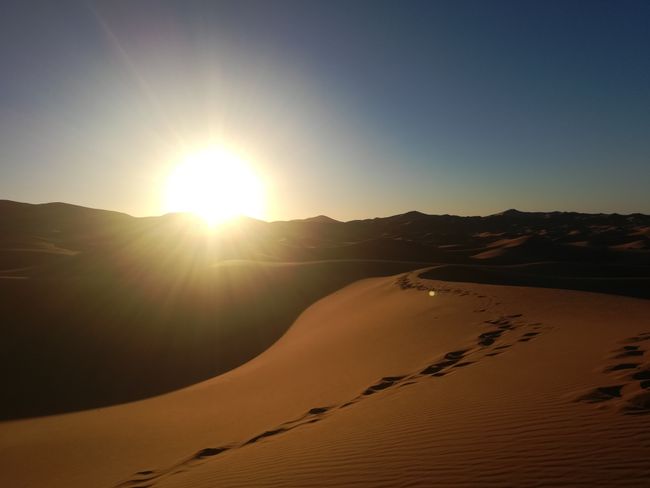
Aithisgean siubhail Morocco
